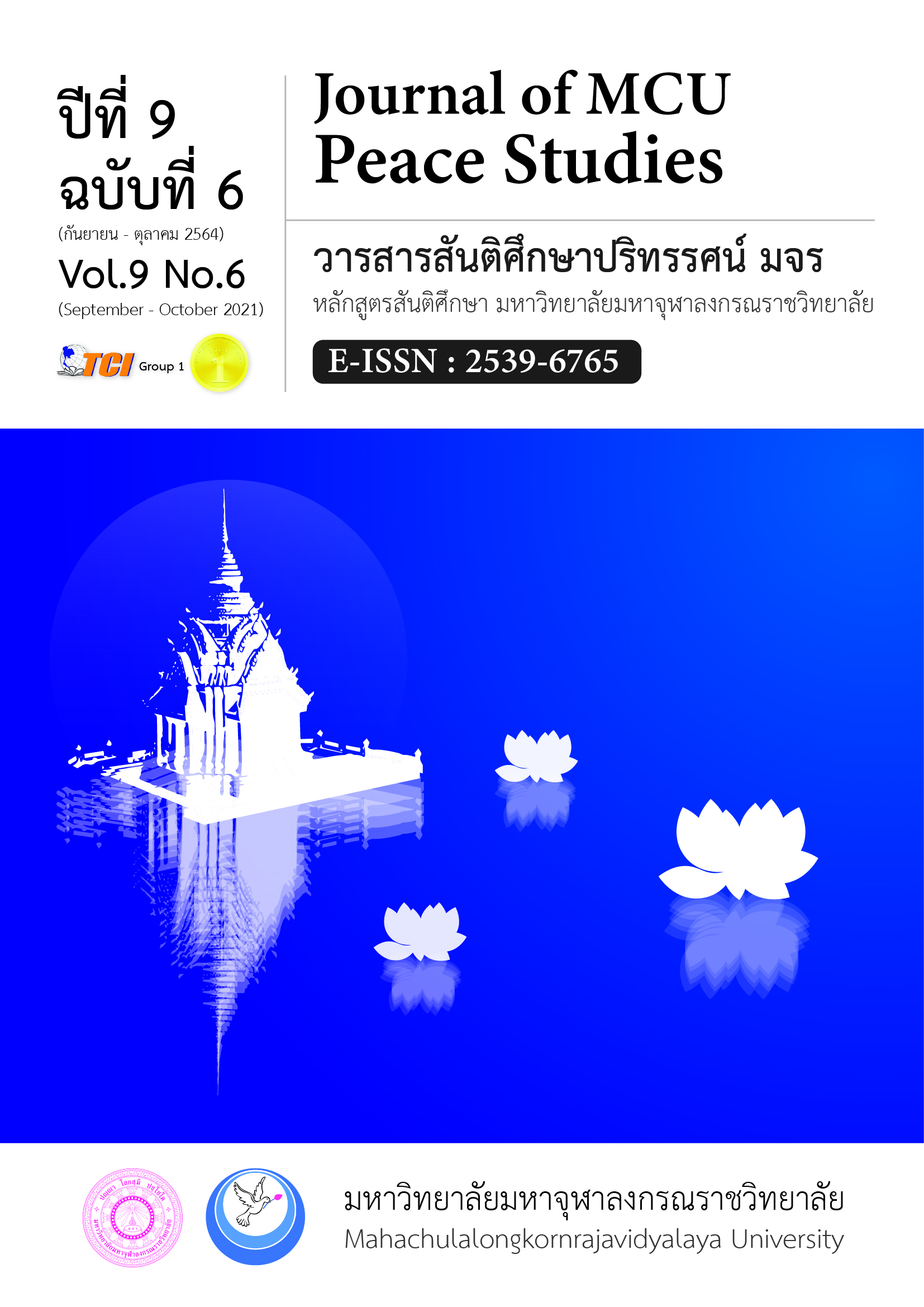อนาคตภาพการจัดการศึกษาอาชีวศึกษาในยุคดิจิทัล ของสถานศึกษาสังกัดสำนักงานคณะกรรมการการอาชีวศึกษา
Main Article Content
บทคัดย่อ
บทความวิจัยครั้งนี้มีวัตถุประสงค์เพื่อ 1) ศึกษาสภาพปัจจุบันและปัญหาของการจัดการศึกษาอาชีวศึกษา 2) ศึกษาอนาคตภาพการจัดการศึกษาอาชีวศึกษาในยุคดิจิทัล 3) นำเสนออนาคตภาพการจัดการศึกษาอาชีวศึกษาในยุคดิจิทัล ตามระเบียบวิธีการวิจัยอนาคตด้วยเทคนิค EDFR (Ethnographic Delphi Future Research) เป็นการวิจัยแบบผสมผสาน กลุ่มตัวอย่างคือผู้อำนวยการหรือรองผู้อำนวยการจำนวน 201 คน การวิจัยแบ่งเป็น 3 ระยะคือ ระยะที่ 1 ศึกษาสภาพปัจจุบันและปัญหาการจัดการศึกษาอาชีวศึกษาในยุคดิจิทัล ระยะที่ 2 ศึกษาอนาคตภาพการจัดการศึกษาอาชีวศึกษาในยุคดิจิทัล ระยะที่ 3 นำเสนออนาคตภาพการจัดการศึกษาอาชีวศึกษาในยุคดิจิทัล เครื่องมือที่ใช้ ได้แก่ 1) แบบสอบถามเป็นแบบมาตราส่วนประมาณค่า 5 ระดับ 2) แบบสัมภาษณ์กึ่งมีโครงสร้าง สถิติที่ใช้ในการวิเคราะห์ข้อมูลเชิงปริมาณ ได้แก่ ค่าเฉลี่ยและค่าเบี่ยงเบนมาตรฐาน ข้อมูลเชิงคุณภาพ ได้แก่ การวิเคราะห์เนื้อหา ค่ามัธยฐาน ค่าฐานนิยม และค่าพิสัยระหว่างควอไทล์ ผลการวิจัยพบว่า 1) สภาพปัจจุบันและปัญหาการจัดการศึกษา พบว่า สภาพปัจจุบันระดับปฏิบัติการอยู่ในระดับมาก ค่าเฉลี่ย (x ̅=4.09, S.D.=0.83) และสภาพปัญหาอยู่ในระดับปานกลาง ค่าเฉลี่ย (x ̅=2.86, S.D.=1.13) 2) อนาคตภาพการจัดการศึกษาอาชีวศึกษาในยุคดิจิทัล จำนวน 8 ด้าน ได้แก่ แนวคิดทฤษฎีที่เหมาะสม หลักการจัดการศึกษา การจัดการเรียนการสอน เครือข่ายความร่วมมือ การบริหารจัดการ การพัฒนาหลักสูตร การพัฒนาบุคลากร และคุณลักษณะของผู้สำเร็จการศึกษา 3) การนำเสนออนาคตภาพการจัดการศึกษาอาชีวศึกษาในยุคดิจิทัล ของสถานศึกษาสังกัดสำนักงานคณะกรรมการการอาชีวศึกษา ผู้ทรงคุณวุฒิมีความคิดเห็นสอดคล้องทั้ง 8 ด้าน เช่น ครูปรับบทบาทเป็นผู้อำนวยความสะดวก สร้างพันธมิตรระดับพื้นที่ มีระบบการจัดทำฐานข้อมูลขนาดใหญ่ กำหนดมาตรฐานครูอาชีวศึกษา ผู้สำเร็จการศึกษามีความรู้ภาษาต่างประเทศ
Article Details
ทัศนะและความคิดเห็นที่ปรากฏในบทความในวารสาร ถือเป็นความรับผิดชอบของผู้เขียนบทความนั้น และไม่ถือเป็นทัศนะและความรับผิดชอบของกองบรรณาธิการ ยินยอมว่าบทความเป็นลิขสิทธิ์ของวารสาร
References
Chaemchoy, S. (2019). School Management in Digital Era. (2nd ed.). Bangkok: Chulalongkorn University Press.
Dawreong, J. (2017). A Scenario of Dual Vocational Education in the Colleges under the Office of the Vocational Education Commission in the Next Decade (2016-2026) . (Doctoral Dissertation). Graduate School: Rajanagarindra Rajabhat University. Chachoengsao.
Gerdruang, A. (2017). Empowering Learning in the 21 superscript Century for Thailand Society in the Digital Age. Lampang Rajabhat University Journal, 6(1), 173-184.
Intajak, U. (2019) . The Scenario of Thai Vocational Teachers During the Next Decades. Mahasarakham University Journal, 13(1), 317-328.
Kanlayalak, N. (2015). The Development of Dual Vocational Education Management, Khon Kaen Vocational Education. Bangkok: Ministry of Education.
Nilsook, P. (2018). Vocational Education Management in Thailand 4.0. Retrieved January 10, 2020, from https://www.slideshare.net/prachyanun1/.
Office of the Council of State. (2008). Vocational Education Act B.E. 2551. Royal Thai Government Gazette, 125.
Office of the Education Council. (2017 ). National Education Act of B.E. 2017-2036. Retrieved January 10, 2020, from http://backoffice.onec. go.th/uploaded/Outstand/ 2017-EdPlan60-79.pdf.
Office of the National Economic and Social Development Council. (2016). National Economic and Social Development Plan B.E. 2017-2021. Retrieved January 23, 2020, from https://www.nesdc.go.th/ewt_dl_link.php?nid=6422.
Office of the Vocational Education Commission. (2017). Vocational Development Plan B.E. 2017-2036. Retrieved January 7, 2020, from https://www.vec.go.th/.
Rukkiatwong, N. (2016). Reform of Vocational Education in Thailand. Bangkok: Thailand Development Research Institute (TDRI).
Ruamchomrat, J. ( 2015) . Management Model of Dual Vocational Training System in Vocational Colleges under the Office of the Vocatinal Education Commission. (Doctoral Dissertation). Graduate School: Kanchanaburi Rajabhat University. Kanchanaburi.

